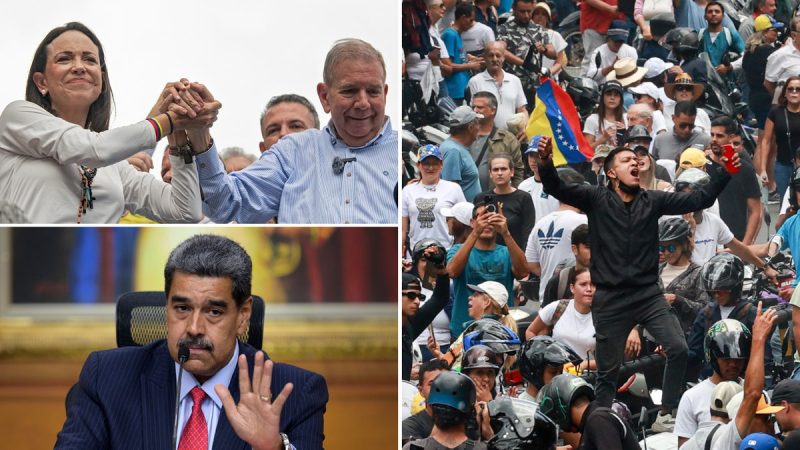
Venezuelan dictator Nicolás Maduro is poised to begin his third six-year term on Jan. 10. The ruling party-controlled congress is set to host the swearing-in ceremony, despite widespread skepticism over the legitimacy of last year’s July 28 election. International and domestic critics question the fairness of the electoral process.
The contested election saw Maduro claiming victory by more than 1 million votes. However, opposition candidate Edmundo González is widely believed to have won by a landslide. The U.S.-based Carter Center, which Maduro’s government invited to observe the presidential election, ratified that the tally sheets published by the opposition are legitimate.
‘Maduro assuming another term on Friday is a blatant violation of the votes of the Venezuelan people. The published tally sheets back that up,’ Jason Marczak, the vice president and senior director of the Atlantic Council’s Adrienne Arsht Latin America Center, told Fox News Digital.
Taking the oath of office will allow Maduro to cement a mix of policies for a country that has been plagued by cronyism, inflation and food insecurity throughout his more than 11 years in power.
The opposition has called for mass protests a day before Maduro’s inauguration. However, the government’s brutal post-election crackdown, which has included the arrests of over 2,000 people, has created a climate of fear that may deter the protesters. Venezuela’s popular opposition leader, María Corina Machado, is planning a return to the public stage after months in hiding, in a last-ditch attempt to stop Maduro.
Edmundo González, recognized by the United States as Venezuela’s president-elect, was forced to flee to Spain in September after a judge issued a warrant for his arrest. He has recently emerged from hiding and is currently on an international tour to shore up support for Venezuela’s opposition party. As part of this effort, González met with President Biden at the White House Monday, describing their conversation as ‘long, fruitful, and cordial.’ He is also in contact with President-elect Trump.
His meetings come just days after Venezuelan authorities announced a $100,000 reward for information on González’s whereabouts, doubling down on its intention to arrest the opposition leader.
With Maduro’s regime coinciding with a second Trump administration, questions have arisen about how the president-elect will approach Maduro. During his first term, Trump was a fierce critic of Maduro, and the two leaders frequently exchanged insults. However, Maduro is now seemingly extending an olive branch to Trump, congratulating him on his re-election and inviting him to foster a relationship based on ‘respect, common sense dialogue, and understanding.’
‘The only negotiation between Trump and Maduro must be the liberation of Venezuela,’ warned Isaias Medina III, a former Venezuelan diplomat on the United Nations Security Council and Harvard fellow.
He told Fox News Digital that, ‘Tren de Aragua, Maduro’s illegal immigration terrorist proxy army, is a clear example of the regime’s strategy of exporting crime and chaos. Using human trafficking, drug smuggling, and organized violence, they threaten American security and regional stability. Stronger sanctions, unwavering resolve, and decisive action are essential to dismantle the threat this criminal regime poses to the United States and its allies. Freedom for Venezuela must remain the non-negotiable goal.’
Some analysts are skeptical that Trump will endorse the same ‘maximum pressure’ strategy he pursued during his first term, especially given his interest in curbing migration. An estimated 7.7 million Venezuelans have fled the tumultuous country since 2014.
‘The incoming Trump administration will chart a new course on Venezuela to reflect the lessons learned from the previous ‘maximum pressure policy.’ The incoming national security adviser, Rep. Mike Waltz, R-Fla., co-sponsored the Bolivar Act as a congressman to further turn the screws on Maduro and support the ‘brave democratic opposition’ while Secretary of State nominee Sen. Marco Rubio, R-Fla., was one of the first to publicly call for recognizing Edmundo González as president-elect,’ Marczak told Fox News Digital.
Over the last few months, the Maduro regime has detained multiple foreigners, including some U.S. citizens, allegedly to use as bargaining chips with the incoming Trump administration. The charges include allegations of espionage or terrorism.

